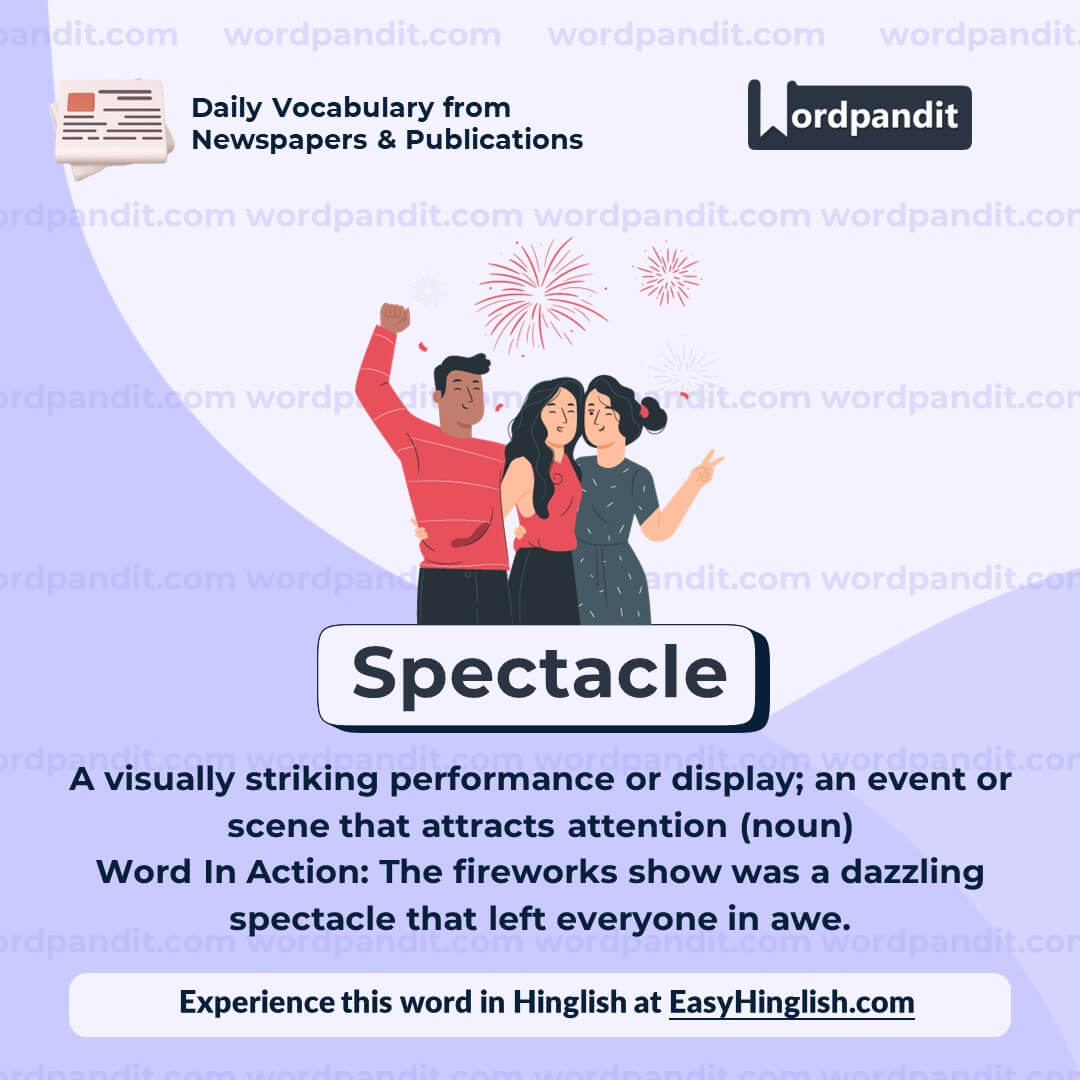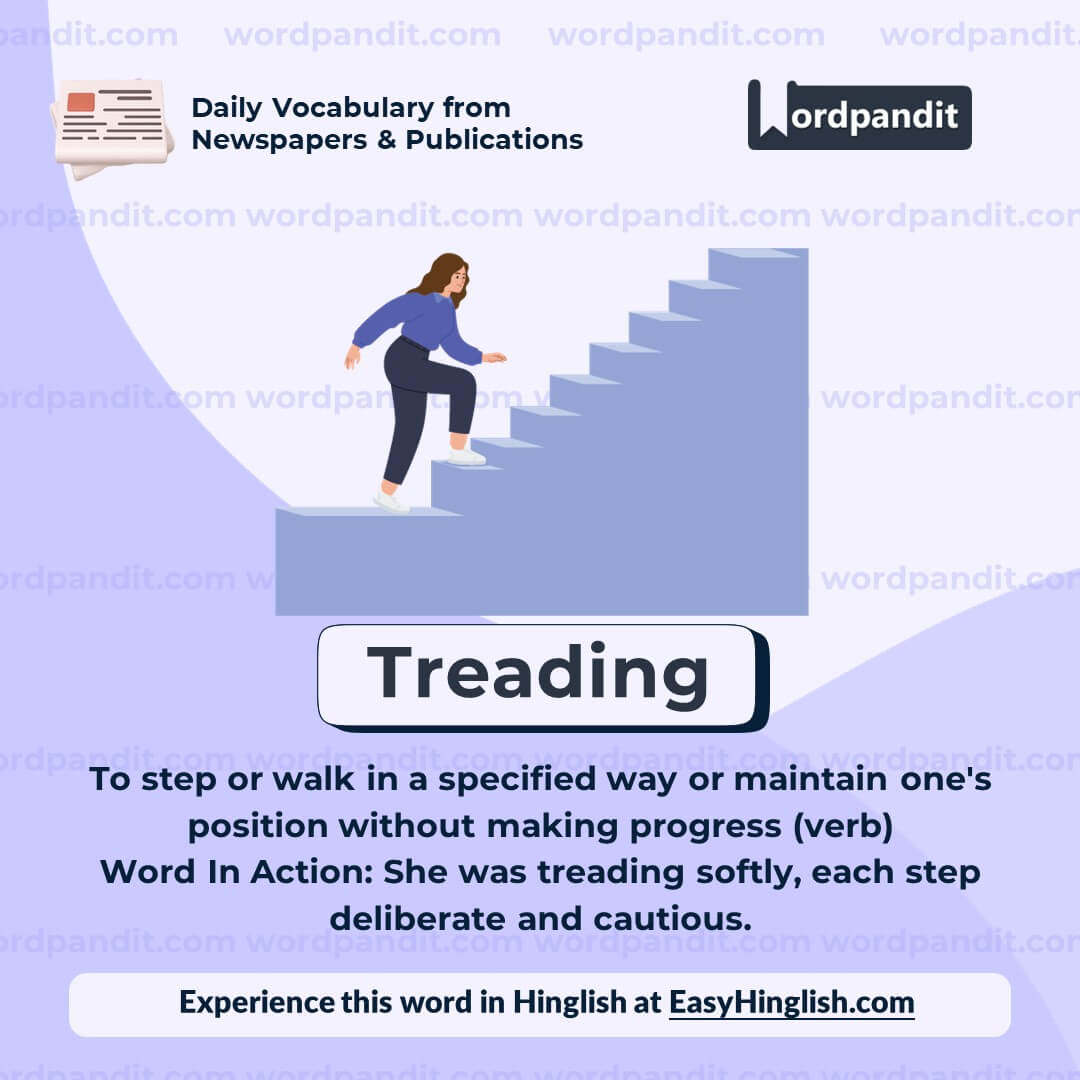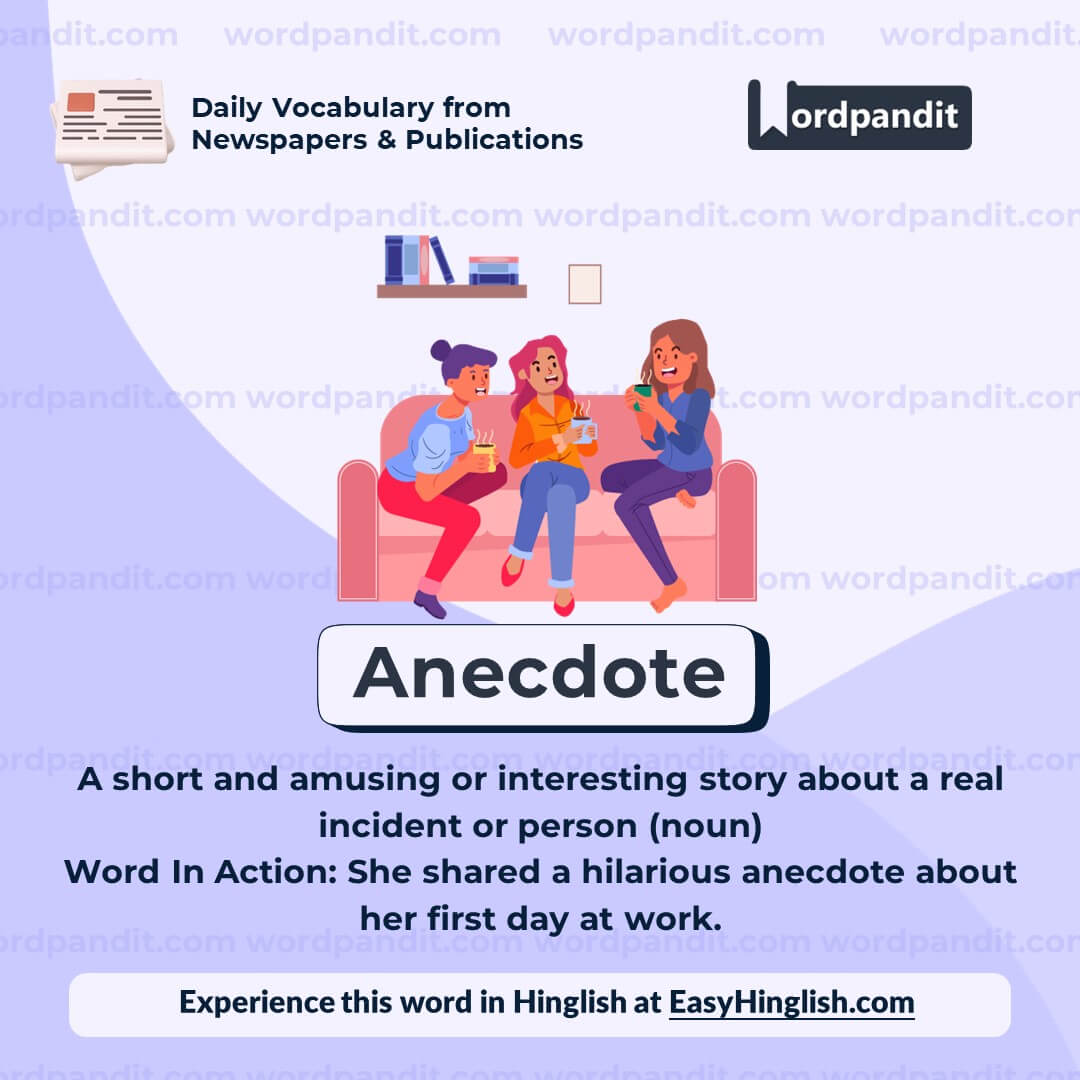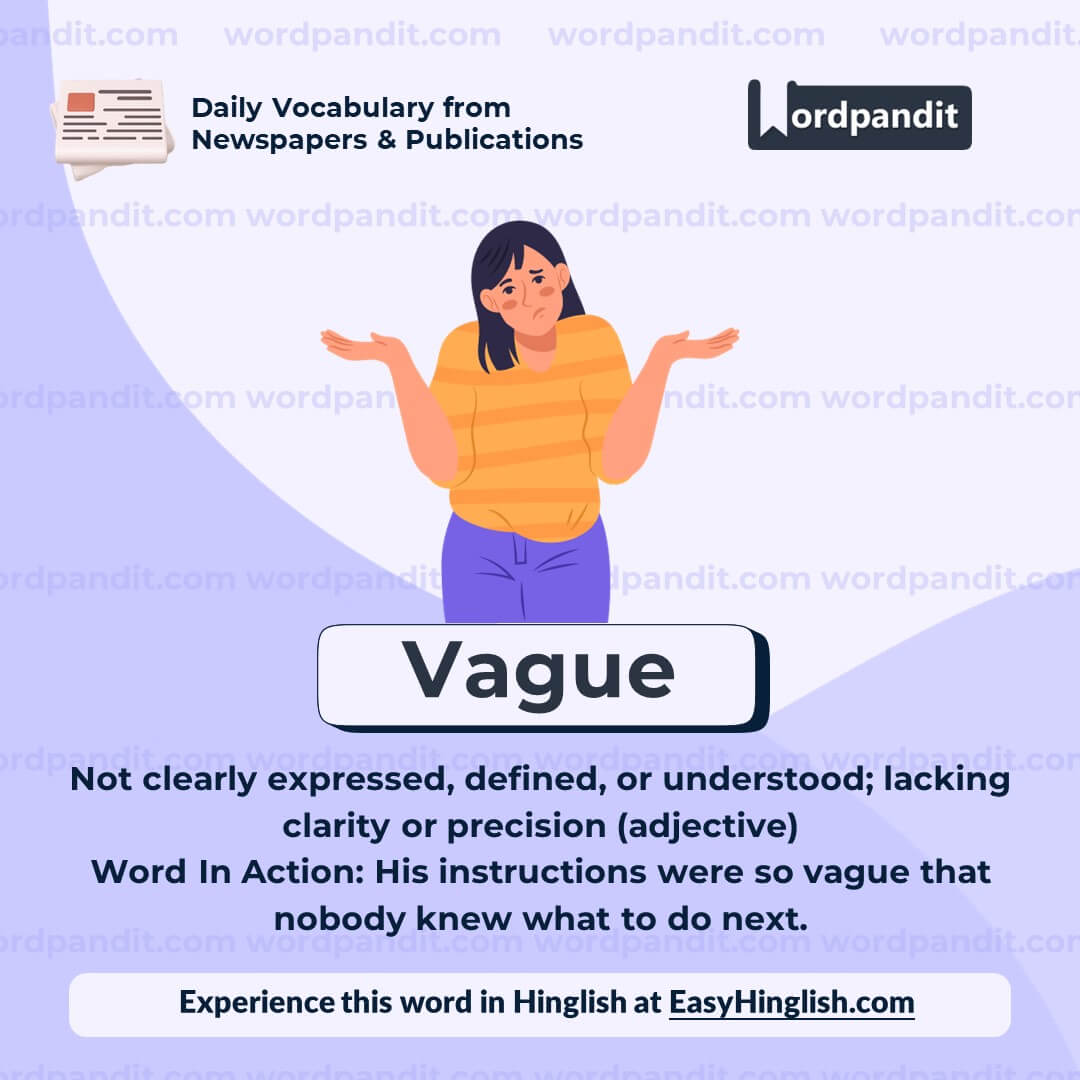Daily Vocabulary from International Newspapers and Publications
Expand Your Vocabulary with Wordpandit’s Global Vocabulary Hub
At Wordpandit, we are committed to helping you develop a truly global vocabulary by drawing from some of the most respected international publications. This section is designed to keep you ahead of the curve by introducing you to words that define global conversations and trends.
The Power of Global Sources
To help you think and communicate on a global scale, we curate vocabulary from renowned international sources, such as:
- The New York Times
- The Washington Post
- BBC
- The Guardian
- The Economist
- Scientific American
- Psychology Today
- And many more...
Stay Global, Stay Competitive
Our daily updates from international publications ensure you are consistently exposed to new words that reflect global news and developments, making sure your vocabulary is not only current but also globally relevant.
Enhance Your Global Perspective
Whether you’re preparing for international exams, aiming to excel in global business communication, or want to enhance your language skills for personal growth, Wordpandit offers the resources you need to thrive in a global context.
Effective Learning, Global Reach
Our learning methodology combines global examples, memory aids, and interactive activities, allowing you to internalize new words effectively and apply them in real-world scenarios.
Begin Your Global Vocabulary Journey Now!
Why Choose Wordpandit?
Practical Learning: Focus on words you'll actually encounter in real-world reading, enhancing your comprehension and communication skills.
Diverse Content: From current affairs to scientific breakthroughs, our varied sources expose you to vocabulary across multiple domains.
Effortless Integration: Make Wordpandit a part of your daily routine. Just a few minutes each day can significantly boost your lexicon over time.
Your Path to Vocabulary Mastery
- Visit our Daily Vocabulary section regularly
- Explore new words and their usage in context
- Practice incorporating these words into your own writing and speech
- Track your progress as your vocabulary expands
Start Your Journey Today
Embark on your vocabulary enhancement journey with Wordpandit. By consistently engaging with our daily posts, you'll build a robust vocabulary that serves you well in academic, professional, and personal contexts.
Remember, a word a day keeps linguistic limitations at bay. Make Wordpandit your daily companion in the quest for vocabulary excellence!
WORD-1: Procrastination
Context:
"I work against myself through procrastination, distraction and addiction. Why do I consistently sabotage my own life?" - Aeon
Explanatory Paragraph:
Procrastination refers to the act of delaying or postponing tasks, often unnecessarily or to one's own detriment. It is commonly linked to feelings of anxiety, avoidance, or difficulty managing time effectively. While putting things off may provide temporary relief, it can lead to increased stress and missed opportunities over time.
Meaning: The action of delaying or postponing something (noun).
Pronunciation: proh-kras-tuh-NAY-shuhn
Difficulty Level: ⭐⭐⭐ Intermediate
Etymology: Derived from the Latin word "procrastinatus," meaning "to put off until tomorrow," which combines "pro" (forward) and "crastinus" (belonging to tomorrow).
Synonyms & Antonyms:
Synonyms: Delay, postponement, avoidance, deferment
Antonyms: Promptness, diligence, immediacy
Usage Examples:
- Her procrastination caused her to miss the deadline for the project.
- Many students struggle with procrastination when preparing for exams.
- He realized his procrastination was rooted in a fear of failing the task.
- Overcoming procrastination requires setting clear goals and sticking to them.
Cultural Reference:
"Procrastination is the thief of time." - This phrase by Edward Young highlights how delaying tasks can waste valuable time.
Think About It:
Why do we procrastinate even when we know it will cause more stress in the long run?
Quick Activity:
Write down three tasks you've been procrastinating on. Choose one and spend five minutes working on it right now.
Memory Tip:
Think of "procrastination" as "pro" (for) + "crastinus" (tomorrow). It’s like cheering for tomorrow while ignoring today!
Real-World Application:
Procrastination is commonly encountered in workplaces, schools, and personal life. Understanding its causes and implementing tools such as prioritization, time-blocking, and accountability can help individuals stay productive and achieve their goals.
WORD-2: Spectacle
Context:
"The breathless hours of coverage news channels across the world gave to the peculiar spectacle, both during the flight and long after the balloon had landed. Directed by the US filmmakers Arlin Golden and Brian Gersten, and produced by the US filmmaker Nathan Truesdell." - Aeon
Explanatory Paragraph:
A spectacle refers to an event or scene that is striking, unusual, or dramatic enough to capture attention. It often evokes amazement, fascination, or even disbelief, making it a central focus for observers or participants. The term can apply to visual displays, public performances, or extraordinary happenings.
Meaning: A visually striking performance or display; an event or scene that attracts attention (noun).
Pronunciation: SPEK-tuh-kuhl
Difficulty Level: ⭐⭐⭐ Intermediate
Etymology: Derived from the Latin word "spectaculum," meaning "a show or display," from "spectare," which means "to look at."
Synonyms & Antonyms:
Synonyms: Display, exhibition, performance, scene
Antonyms: Ordinary event, mundane occurrence
Usage Examples:
- The fireworks show was a spectacle that left the crowd in awe.
- Her dramatic outburst turned the quiet dinner into a public spectacle.
- The annual parade is a spectacle of colors, music, and energy.
- The unique architecture of the building made it a spectacle for tourists.
Cultural Reference:
"Bread and circuses" in ancient Rome were spectacles organized by the government to distract and entertain the public, showing the power of dramatic events to capture people's attention.
Think About It:
Do you think spectacles, while entertaining, sometimes distract people from more important issues?
Quick Activity:
Look up a recent public spectacle in the news. Write two sentences describing what made it so captivating.
Memory Tip:
Think of "spectacle" as related to "spectator." A spectacle is something so striking that it demands spectators!
Real-World Application:
From sporting events to artistic performances, spectacles play a crucial role in entertainment and culture, offering a shared experience that can unite communities and inspire creativity.
WORD-3: Treading
Context:
"Some years ago, I sat in a BBC boardroom facing a panel of senior editors interviewing me for a promotion. After treading water in a junior role for years, I wanted the job more than anything." - Aeon
Explanatory Paragraph:
Treading typically refers to walking or stepping carefully or maintaining a certain position. In figurative terms, "treading water" describes a state of inactivity or stagnation, where one maintains their position but doesn't progress. It conveys a sense of staying afloat or enduring a situation without moving forward meaningfully.
Meaning: To step or walk in a specified way or maintain one's position without making progress (verb).
Pronunciation: TRED-ing
Difficulty Level: ⭐⭐ Beginner
Etymology: Derived from Old English "tredan," meaning "to step or walk." Its figurative use, such as "treading water," originated from the physical act of keeping oneself afloat in water by moving the legs and arms.
Synonyms & Antonyms:
Synonyms: Stepping, walking, pacing, stagnating
Antonyms: Progressing, advancing, leaping
Usage Examples:
- She was treading carefully on the icy path to avoid slipping.
- After years of treading water in her career, she finally decided to pursue her passion.
- The explorers were treading through dense jungle terrain to reach the lost city.
- He felt like he was treading water in his relationship, with no real progress being made.
Cultural Reference:
In motivational speaking, "treading water" is often used as a metaphor for enduring difficult situations without significant growth, inspiring individuals to take proactive steps forward.
Think About It:
Have you ever felt like you were "treading water" in a part of your life? What steps could you take to move forward?
Quick Activity:
Write a short paragraph describing a situation where you felt like you were "treading water." Reflect on how you overcame it or plan to do so.
Memory Tip:
Picture someone "treading water" in a pool—staying afloat without moving forward. This mental image can help you remember the meaning of the phrase.
Real-World Application:
"Treading water" is a relatable metaphor in professional and personal contexts, often used to describe moments of stagnation. Recognizing when you're "treading water" can motivate you to set goals and take actionable steps to advance.
WORD-4: Anecdote
Context:
"I reached for my anecdote and started to speak, something strange began to happen inside my head. A song started to play on repeat." - Aeon
Explanatory Paragraph:
An anecdote is a brief and interesting story or account of an event, often told to illustrate a point, entertain, or make a conversation engaging. It usually focuses on a specific moment or incident and is often shared in casual or personal settings.
Meaning: A short and amusing or interesting story about a real incident or person (noun).
Pronunciation: AN-ik-doht
Difficulty Level: ⭐ Beginner
Etymology: From the Greek word "anekdota," meaning "things unpublished," which combines "an-" (not) and "ekdidonai" (to publish or give out).
Synonyms & Antonyms:
Synonyms: Story, tale, narrative, account
Antonyms: Discourse, essay, report
Usage Examples:
- He shared an amusing anecdote about his childhood during the dinner party.
- The teacher used an anecdote to help explain the difficult concept to her students.
- The writer's book is filled with anecdotes about her travels around the world.
- In his speech, the politician included an anecdote to connect with the audience emotionally.
Cultural Reference:
Anecdotes are often used by comedians and public speakers to engage their audiences. For instance, stand-up comedians frequently rely on humorous anecdotes from their personal lives to entertain their listeners.
Think About It:
What makes a personal anecdote powerful and memorable when shared with others?
Quick Activity:
Write a short anecdote about a funny or memorable moment from your day. Share it with a friend or family member.
Memory Tip:
Remember "anecdote" by associating it with "antidote"—just like an antidote cures poison, an anecdote cures boredom in conversations!
Real-World Application:
Anecdotes are widely used in public speaking, teaching, and even in sales pitches to create a human connection, make a point relatable, or add humor to otherwise dry topics.
WORD-5: Vague
Context:
"Late guest and the impatient presenter: just vaguely conscious that telling it felt really hard, like trying to have an in-depth conversation in a nightclub." - Aeon
Explanatory Paragraph:
The word "vague" refers to something unclear, imprecise, or lacking definite shape or meaning. It can describe thoughts, expressions, or situations that are hard to understand due to their ambiguity or lack of detail. Being vague can sometimes result from uncertainty or a deliberate attempt to avoid specifics.
Meaning: Not clearly expressed, defined, or understood; lacking clarity or precision (adjective).
Pronunciation: VAYG
Difficulty Level: ⭐ Beginner
Etymology: From the Latin word "vagus," meaning "wandering" or "uncertain."
Synonyms & Antonyms:
Synonyms: Ambiguous, unclear, indefinite, indistinct
Antonyms: Clear, precise, definite, explicit
Usage Examples:
- Her vague instructions made the task more difficult than it needed to be.
- The witness could only give a vague description of the suspect.
- I have a vague memory of visiting that place as a child, but I can't recall the details.
- He gave a vague answer when asked about his plans for the weekend.
Cultural Reference:
In literature and art, vagueness can be used intentionally to evoke mystery or to leave interpretation open to the audience. For instance, abstract art often thrives on vagueness to spark imagination.
Think About It:
Is vagueness always a bad thing, or can it sometimes help stimulate creativity and personal interpretation?
Quick Activity:
Write a vague description of a familiar place. Then, rewrite it with specific details to see the difference in clarity.
Memory Tip:
Think of "vague" as similar to "fog"—both obscure your ability to see clearly.
Real-World Application:
Vagueness is often encountered in casual conversations or unclear instructions. In professional or academic settings, minimizing vagueness is essential to ensure effective communication and understanding.


















